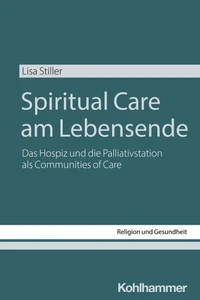Ohnmacht und Angst aushalten. Kritik der Resilienz in Theologie und Philosophie
Par : , , , ,Formats :
Disponible dans votre compte client Decitre ou Furet du Nord dès validation de votre commande. Le format PDF est :
- Compatible avec une lecture sur My Vivlio (smartphone, tablette, ordinateur)
- Compatible avec une lecture sur liseuses Vivlio
- Pour les liseuses autres que Vivlio, vous devez utiliser le logiciel Adobe Digital Edition. Non compatible avec la lecture sur les liseuses Kindle, Remarkable et Sony
 , qui est-ce ?
, qui est-ce ?Notre partenaire de plateforme de lecture numérique où vous retrouverez l'ensemble de vos ebooks gratuitement
Pour en savoir plus sur nos ebooks, consultez notre aide en ligne ici
- Nombre de pages199
- FormatPDF
- ISBN978-3-17-031140-4
- EAN9783170311404
- Date de parution30/08/2017
- Protection num.Digital Watermarking
- Taille1 Mo
- Infos supplémentairespdf
- ÉditeurKohlhammer
Résumé
Increasingly intense research on the topic of resilience is taking place, but the fields of theology and philosophy are now only gradually entering the debate. The constitutive significance of religion and spirituality for the phenomenon of resilience is well recognized, but its theoretical clarification and practical usage are as yet unclear. The findings of the Bonn project on "Resilience and Spirituality" thus close a gap in the research.
Theoretical, literary and traditional practice findings are expanding previous lines of research and represent an invitation to carry out interdisciplinary criticism, amplification and further development. The essays in this volume formulate well-founded specialist criteria for a critique of a concept of resilience that has been commercially hollowed out: resilience is not a harmless "wellness" concept, but designates an ambivalent crisis phenomenon that needs to be precisely comprehended.
It is only in this way that the concept and phenomenon of resilience will be able to develop their crisis-stabilizing effects.
Theoretical, literary and traditional practice findings are expanding previous lines of research and represent an invitation to carry out interdisciplinary criticism, amplification and further development. The essays in this volume formulate well-founded specialist criteria for a critique of a concept of resilience that has been commercially hollowed out: resilience is not a harmless "wellness" concept, but designates an ambivalent crisis phenomenon that needs to be precisely comprehended.
It is only in this way that the concept and phenomenon of resilience will be able to develop their crisis-stabilizing effects.
Increasingly intense research on the topic of resilience is taking place, but the fields of theology and philosophy are now only gradually entering the debate. The constitutive significance of religion and spirituality for the phenomenon of resilience is well recognized, but its theoretical clarification and practical usage are as yet unclear. The findings of the Bonn project on "Resilience and Spirituality" thus close a gap in the research.
Theoretical, literary and traditional practice findings are expanding previous lines of research and represent an invitation to carry out interdisciplinary criticism, amplification and further development. The essays in this volume formulate well-founded specialist criteria for a critique of a concept of resilience that has been commercially hollowed out: resilience is not a harmless "wellness" concept, but designates an ambivalent crisis phenomenon that needs to be precisely comprehended.
It is only in this way that the concept and phenomenon of resilience will be able to develop their crisis-stabilizing effects.
Theoretical, literary and traditional practice findings are expanding previous lines of research and represent an invitation to carry out interdisciplinary criticism, amplification and further development. The essays in this volume formulate well-founded specialist criteria for a critique of a concept of resilience that has been commercially hollowed out: resilience is not a harmless "wellness" concept, but designates an ambivalent crisis phenomenon that needs to be precisely comprehended.
It is only in this way that the concept and phenomenon of resilience will be able to develop their crisis-stabilizing effects.



